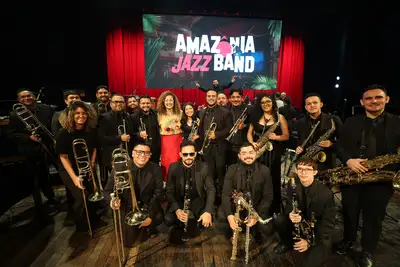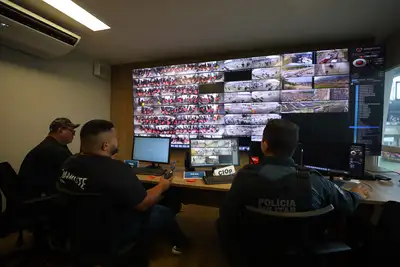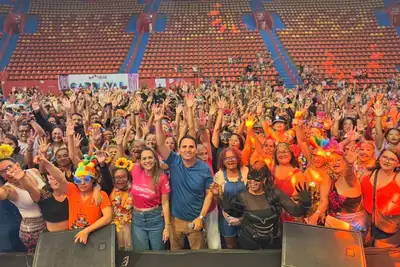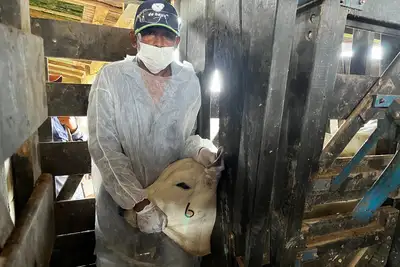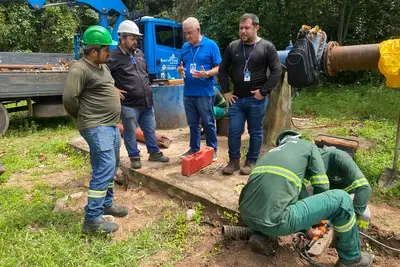Government of Pará strengthens the protagonism of family farming in the climate agenda of COP 30
International event in Belém highlights public policies, productive inclusion, and sustainable solutions for traditional and rural communities
The Government of Pará participated, this Friday (14), in the opening of the International Forum on Family Farming and Traditional Communities, held at Agrizone – a space set up at Embrapa Amazônia Oriental, in Belém, as part of the official program of the 30th United Nations Conference on Climate Change (COP 30). This action reinforces the state’s commitment to strengthening public policies aimed at family farming, food security, and climate adaptation in the Amazon region.
The forum's program continues until November 17, with thematic panels on resilience to climate emergencies, agroforestry systems, ecological restoration, sustainable production chains, and socio-bioeconomics.
Integrated actions for climate and sustainable production
Representing the State Secretariat for Environment, Climate and Sustainability (Semas), the Deputy Secretary for Water and Climate Management, Renata Nobre, emphasized the strategic importance of family farming and traditional communities in Pará's environmental agenda.
“At Semas, we are developing several new policies in strong partnership with Family Farming, with Embrapa always close by and with the support of IPAM, which has been a fundamental partner,” highlighted the manager, recalling that dialogue with social movements such as FETAGRI and FETRAF has been consolidating since 2020.
Renata also reinforced the need for active listening and direct participation of farmers in building solutions. “There is no sustainable development without your valuable contributions. We are already implementing policies such as Payment for Environmental Services (PSA), in addition to actions to support environmental regularization, technical assistance, and encouragement for the adoption of good practices in Sustainable Territories.”
Technical support and productive inclusion
The State Secretary for Family Farming, Cássio Pereira, was also present at the opening and highlighted the role of family farming in Pará's food economy, responsible for 70% of the food consumed in the state.
Among the main strategies mentioned is the State Plan Amazon Now (PEAA), an initiative that integrates environmental conservation, productive efficiency, and technical support for rural workers.
“With the PEAA, we are advancing in policies that reconcile standing forests and prosperity for rural and traditional populations, through concrete actions of financing and valuing sustainable production chains,” highlighted the secretary.
Federal support and investment in productive forests
During the event, the Minister of Agrarian Development and Family Agriculture, Paulo Teixeira, announced important investments to strengthen family-based agriculture in the Amazon. Among them, the financing of R$ 450 million in non-repayable funds via BNDES, aimed at 80 settlements and 17 cooperatives, focusing on productive forests.
“The environment needs to be thought of together with the people who live in the Amazon. Productive forests are the way: they recover biodiversity, capture carbon, and generate income,” said the minister, who also informed about the availability of R$ 50 million from Caixa Econômica Federal to support projects in settlements and traditional communities.
Voices of the forest
The reality of climate change is already being felt directly by those who live off the land. The president of the Cooperative of Agroextractivist Workers of Western Pará, Manoel Edivaldo, reported a decline in honey production in recent years due to severe drought. “Before, we knew when it was winter and when it was summer. Now we don’t. Everything has changed,” he said.
Even with the difficulties, collective work and technical support have helped cooperatives recover production and plan for the future. “The expectation is to improve even more with the recognition of the importance of family farming for the forest and for food,” he added.
The Forum also received representatives from other states in the Legal Amazon, such as farmer Francelino da Silva Oliveira, from the Maracapuru community (AM), who participates to bring new learnings to his indigenous community Catibiri. “I hope to enrich my knowledge and apply what is working in Pará also in our region,” he stated.
Program continues until November 17
The panels, tables, and plenaries of the International Forum on Family Farming and Traditional Communities continue until Sunday (17), from 10 am to 4 pm, at the Agrizone space, with the participation of managers, technicians, farmers, and community leaders.
The event is promoted by the Amazon Environmental Research Institute (IPAM) and has the support of the Government of Pará, Embrapa, SEAF, Semas, and other institutional partners.
Text: Tânia Menezes and Jamile Leão









